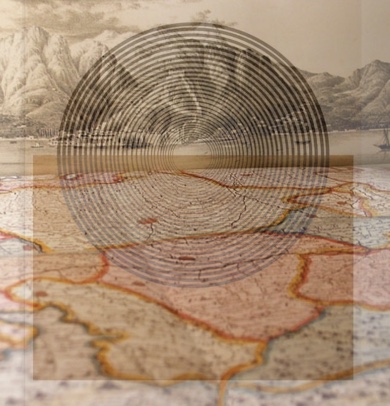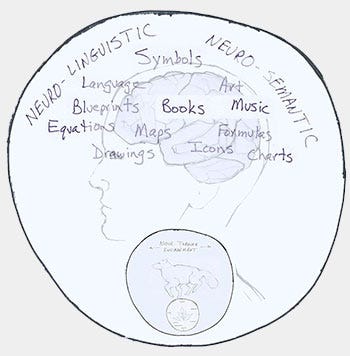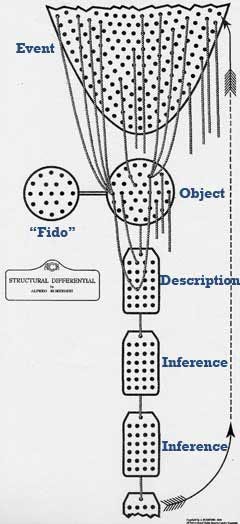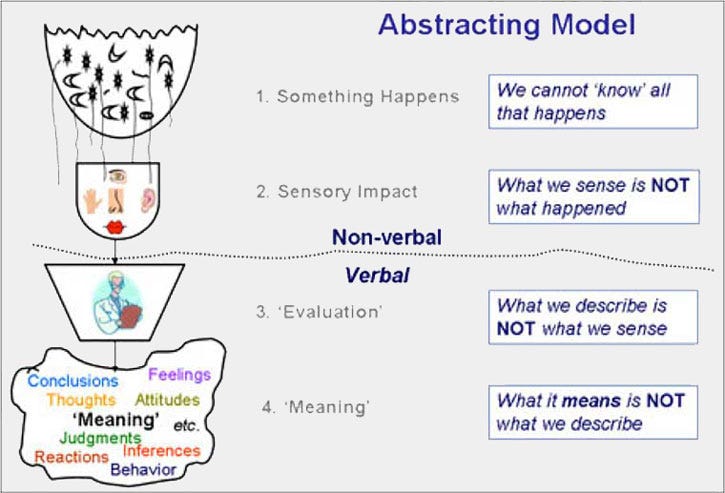Episode 5

What happens when an ideology under the infinite guise creates a finite number of institutional/non institutional posts? The more ideologically entrenched a society is, the more it perceives any diversity as a threat. All human societies require myths, and they cannot function effectively as societies so long as they remain baffled by their ambivalence. For any concerted action to be possible, myths must be “ideologized” In its essence, politics is the practice of making symbols useful, for good and for ill
A society is pre-totalitarian when its people will only accept as “truth” what confirms what they prefer to believe. The politics apprehends genuine artistic works as works of artifice. You also have to be skeptical of the altruism behind conscripting a large number of people for free work is in their best interests. That is to say, even the political needs art as its mythopoeic foundation and challenge.
It is also true that humans can only produce art through culture by means of sign systems that are politically established and maintained. The best sometimes artist can hope for is a tenuous and ultimately doomed alliance with the status quo.
In the Marxist base and superstructure model of society, Ruling class-interests determine the superstructure and the nature of the ideology justifying the actions of society. An authority who calls to us is interpellating us a position we recognize and accept. The position we take is relative to a superior and central ‘Other Subject’, exercising emotional authority. Our identity is thus defined by the other and we recognize ourselves as an image or a reflection of the Other. The consistency principle leads you into a cycle of investment whereby you bond your sense of identity both to the subject position and also the underlying ideology.
Althusser’s explained how Ideological apparatuses interpellated the subjects into ideological positions. This interpellation is a form of misrecognition, where an externalized image is perceived both as the self and an ‘other’ all of which can be imagined along the lines of the most commonplace everyday police (or other) hailing: ‘Hey, you there!’”
INFORMATION TECHNOLOGY: ARISTOTLE’S FRETS
Aristotle imagined a world in which machines could do all the work for themselves. He believed that better machines could free and elevate people, even slaves. But when the economy becomes more about information it seems to distort and shrink the overall size. In the case of the music industry, making a pre-digital system “efficient” through a digital network shrank it economically to about a quarter of its size. Instead wealth is being vacuum upstairs, since most of the real value still occurs out in the real world is reconceived to be off the books.
We’re used to treating information as “free,” but the price we pay for the illusion of “free” is only workable so long as much of the overall economy isn’t about information. The information economy, has been busy trying to conceal the value of all information, of all things things
The identity stack is 3 layers: fabrication of interchangeable components, knowledge sets and expensive cryptography. Non-material roles may be priced at will pertaining to social conceptions of status, possession, rights and so forth. The capacity to “innovate” which is usually a word for disintermediation is now potentially exceeding the capacity to learn. The practice of splitting the economic and social aspects of technology at the lowest attainable level is like dividing church and state for our day.
The material structure can get as cheap as nature allows, and advances as quickly as technology. The ability to re-package and shrink economy seems to be growing exponentially. But if the world is to be reconceived and engineered as a place where people are not particularly distinguished from other components, then people will fade.
INFORMATION IS NOT FREE
Software could be the final industrial revolution, and it might subsume all the revolutions to come: Maybe technology will make all the needs of life so inexpensive that it will be virtually free to live well. But instead, we are probably heading into a period of hyper-unemployment, and the attendant political and social chaos. The outcome of chaos is unpredictable, and we shouldn’t rely on it to design our future.
We’re used to treating information as “free,” but the problem in each case is not that you stole from a specific person but that you undermined the artificial scarcities that allow the economy to function. “Public goods” are defined as Non-exclusionary. They can be used by everyone, including those who don’t pay. They are Non-rivalrous. You disintermediate some and intermediate others. Transfer of intellectual property to those unrelated to the inventors is like injecting meth. Short term euphoria and long-term doom.
MOORE’s LAW
Moore’s Law means that more and more things can be done practically for free, if only it weren’t for those people who want to be paid. People are the flies in Moore’s Law’s ointment: when machines get incredibly cheap to run, people seem correspondingly expensive. In previous times in history inventions of new things created high value occupations by automating or eliminating those of lower value. Today’s flexible software is threatening to “free” us from the drudgery of all repetitive tasks rather than those of lowest value, pushing us away from expertise.
Pdf Economy
The standard mindset in the Western post-industrial state can only conceptualize of things in an inherently consumerist fashion. Every purchase of an old-fashioned vinyl, keyboard or guitar opens an opportunity to earn money by enhancing provenance.
More and more of the economy is mediated through a productification of the environment, and then after productification, we turn it in pdfs or mp3 but keeping it predicable, largely consumerist experience. The rise of the “network economy” where all economic activity is mediated by information tools, and the commodification of all human activity as a service to the information age.
An Mp3 buyer is no longer a first-class citizen in a marketplace. When you buy a vinyl, you can resell it at will, or continue to enjoy it no matter where you decide to buy other vinyl’s. You have only purchased tenuous rights within someone else’s company store. Musical recording was a mechanical process until it wasn’t, and became a network service.
WHAT FREEMIUM & WALMART HAVE IN COMMON
In order for a computer to run, the surrounding parts of the universe must take on the waste heat, the randomness. Google wants to be closed about how it compiles and exploits your information. Facebook wants you to have only one identity, so that it’s easier to collate information about you. Twitter suggests that meaning will emerge from fleeting flashes of thought contextualized by who sent the thought rather than the content of the thought. The plain is to gain dominance through rewarding network effects, but keeps dominance through punishing network effects.
The illusion that everything is getting so cheap that it is practically free sets up the political and economic conditions for cartels exploiting whatever isn’t quite that way. When music is free, wireless bills get expensive, insanely so. No matter how petty a flaw might be in a utopia, that flaw is where the full fury of power seeking will be focused. The power of the network grows as the square of its size. The original form was called the fax-machine effect.
One person with a fax machine is useless. Two people is one connection. Three people is three potential connections. Four is 6.
The Web has created a broad new class of knowledge workers: volunteer amateur editors. Their net effect is to displace existing knowledge workers, including journalists, writers, librarians, musicians. Nothing kills jobs faster and more permanently than free labor.
A few of the folks all this places aggregates will inevitably get an insane lift from being hitched to it, and they’ll create even more excitement.
After all that’s the religion the world has run on for 40 years. This ideology wants the algorithm to run the show with as few humans in the loop as possible, ostensibly to improve “customer service” by “lowering prices.
The only thing that matters is that you don’t want to be left out of the loop in the information age. The game is on you, and it will only get worse. The only thing that matters is that you don’t want to be left out of the loop in the information age, and that you want your information to be valued in economic terms, not in terms of how much you can make from it. If the information age accounting were complete and honest, as much information as possible would be valued by those who provide the information.
NAPSTERIZATION OF EVERYTHING: BIG DATA
Scientific data can be gathered and mined, just like gold, provided you put in the hard work. Pretending that data came from the heavens instead of from people can’t help but shrink the overall economy. Capitalism only works if there are enough successful people to be the customers. No economy can be sustained on the backs of a few hundred major companies with a handful of employees and virtually no overhead. No amount of cost lowering can foster economic dignity when it also means that there are fewer good jobs.
We can’t tell how much of the success of an AI algorithm is due to people changing themselves to make it seem successful. People have repeatedly proven adaptable enough to lower standards in order to make software seem smart. Efficiency is a synonym for how well a server is influencing the human world to align with its own model of the world.
The future is uncertain. The death of traditional jobs in the manufacturing and retail industries and the decline in the middle class are just some of the factors contributing to the decline. No amount of cost lowering can foster economic dignity if it also means that there are fewer good jobs.
BELL CURVES: THE SUPERSTAR ECONOMY:
The music industry is a Superstar economy, that is to say a very small share of the total artists and works account for a disproportionately large share of all revenues. This is not a Pareto’s Law type 80/20 distribution but something much more dramatic: the top 1% account for 77% of all artist recorded music income. A star system is just a way of packaging a bell curve. Winner-take-all distributions come about when there is a global sorting of people within a single framework. But broader forms of reward like academic tenure and research grants are vastly more beneficial
All rituals in which anointed individual will suddenly become rich and famous are winner-take-all rituals. Winner- take-all Distributions, amplify errors and make outcomes less meaningful . To rely on them is a mistake — pragmatic, ethical, but also a mathematical one. Top players are rewarded tremendously while almost everyone else starves.
To get a bell curve of outcomes there must be a variety of paths, or sorting processes, that can lead to success. Henry Ford made a point of pricing his cars so that his own factory workers could afford to buy them. Digital networks have been mostly applied to reduce benefits of locality, and that will lead to economic implosion.
LEVEES
Bands, solo artist, styles and other talent have gone extinct during the collapse of the music industry, mainly as a result of human activity. A big part of the problem is that most consumers now attribute very little value to the recording itself. A decade-long decline in recording revenues has dismantled the label system, once the most reliable form of artist financing.
The music industry brass remained static and went on a campaign to blame everybody but themselves for their problems, The top 1% account for 75% of CD revenues but 79% of subscription revenue. Nashville has lost more than 80 percent of its songwriters since 2000. Most artists are overwhelmed with tasks that go far beyond making music, such as Tweeting fans. Lower royalties are killing an entire generation of writers, he writes. We are slowly losing the race against multi-resistant bacteria, he says.
The only thing that really works for the user (iTunes, Amazon, Spotify) has given rise to a hardware-based, proprietary, walled- garden, non-music-centric, de-facto monopoly. When you hollow out culture, it is inevitable that parasitic forces fill the void sometimes called corporations, sometimes called government.
The hyperefficient market optimized to yield star-system results will not create enough of a middle class to support a real market dynamic. It is that balance that creates economic growth, and thus opportunity for more wealth. To combat the degradations of star systems, levees” arose to compensate Thermodynamics and protect the middle class.
Levees modestly hold back thermodynamics to protect something precious. Markets are an information technology. A technology is useless if it can’t be tweaked. We can survive if we only destroy the middle classes of musicians, journalists, and film makers. But the destruction of transportation, manufacturing, energy, office work, education, and health care will come if the dominant idea of an information economy isn’t improved.
Live Music fans are frustrated with high ticket prices at concerts. The average consumer goes to just 1.5 shows a year. Many others are touring just to pay the bills, including medical bills. Dick Dale, who remains on the road despite his advanced age to pay for treatment for rectal cancer, renal failure, and massive vertebrae damage.
“When this music wants to be free things started happening. We just started having weekly fundraisers for people like famous musicians who’d gotten sick in old age and had like no support me more,” says singer/songwriter John Perry Barlow. “ Intellectual property kind of like a lot of things in our society it you can think of it as something that only benefits elites but actually it was fought for by unions trying to support people who are not elites at all,” he says. “To have it lost by people who thought they were doing the right thing is just one of the great tragedies of our era,” he adds.
Record companies and the Broadcast publishing official statistics are under increased pressure to keep up the illusion that the music Industry is recovering by manipulating whatever dials can be turned by law or fiat. It has given reign give to an interim “gimmick economy” but in the long term, this way of using network technology is not even good for the rich and most powerful players because their ultimate source of wealth can only be a growing economy. An economy where we sell each other PDF’s or MP3’s is no more viable that the debt based on we have now.
The ideal mechanism would reward creativity, and still be tough enough to withstand thermodynamics which will surely appear. So long as public goods make up a minority of a market economy, taxes on non-public goods can be used to pay for the exception where price and value gap are large.
TECHNOLOGY
I think where people go wrong in imagining post-capitalist economies is starting with values. The stacking order is technology → economics → values. You need to start with alternative technological principles. Example: design with degradation/aging as a feature not bug.
Venkatesh Rao
The average Sci-Fi writer of the 50s, 60s and 70s would be very, very disappointed with the world of 2018. Technology is not pure/impure but subjected to ape psychology People outside tech truly do not understand the insane & stupid arrogance that dudes develop when you give them magic computer powers, tell them to use those powers instead of thinking, pay them a lot of money, and then give them a space where they can suck each other’s dicks all day. Technology is someone’s opinion in material form, sometimes it’s tantamount to being trapped in someone else’s head. What if tech was designed to solve last century’s problems? Why are we so ineffective tackling the 21st? Maybe we are not prepared to make changes that go beyond our current level of mental complexity. Unfortunately the medium has ended up amplifying lack of flexibility, along with self-absorption.
Biggest “tech” breakthroughs in recent years have been nothing more than clever hacks to get around onerous regulation, he writes. Tech exaggerates economic system tendencies toward extraction, growth for growth’s sake, he says. “World building is a thing” in a digital world, he adds. It’s time for a new era of techlash, and a new generation of tech entrepreneurs, he argues. “Art requires the flexibility to loosen one’s identity in order to feel the pleasure of merging with the artist,” he says, in an emotional and physical connection.
Much of internet was a means to access inner space with different destinations being different possible versions of future you. The new stack is so successful that it optimizes its environment instead of changing in order to adapt to the environment. Cheap networking facilitates exaggerated and rapid network effects. Silicon Valley, which once seemed a portal to unlimited potential, now induces claustrophobia as so many distinct companies with different competencies and cultures must compete for the same global pool of so-called advertisers. It might eventually become an ouroboros, a snake eating its own tail.
This access to inner spaces was supposed to make up for our lack of experience in peer relationships which was preventing some the development of the common pathway through which people learn about decision-making skills and the capacity to maintain a relationship.
However, when your inner space is opened to commercial activity, it exaggerates this economic system tendencies toward extraction, growth for growth’s sake, and the removal of human agency and connection. Now the system amplifies for ruthlessness, and capital “becomes a person” through corporations and tech.
So much information is “free,” that there is nothing left to advertise on Google that attracts actual money. It may well mean either the state takes the means of production to sustain itself (i.e seizes say a bitumen plant to keep roads) or simple hollows out in time. It seems like subtracting value, an enormous amount of value, and stymied progress to seize control and extract wealth.
High unemployment and very high underemployment may well result in a non functioning state. This means building new models for the distribution of necessary rival goods. It is entirely legitimate to understand that people are still needed and valuable. The rich live behind gates, not just to protect themselves, but to pretend to not need anyone else. The ghosts of the losers haunt every acre of easy abundance.
It’s not as if everyone wanted to be closer to all of humanity when cities first formed. Something was lost with the advent of the polis, and we still dream of getting it back. The greatest beneficiaries of civilization use all their power to create a temporary illusion of freedom from politics. In every case, abundance without politics was an illusion that could only be sustained in temporary bubbles, supported by armies. It was a bubble supported by the power of the rich, and it’s time to get rid of it, he argues. The quote could be interpreted as a daydream that better technology will free us to some degree from having to deal with one another.
For better or worse, when the time comes the future will be shaped by the separation of church and state for our times. Our new time lords display difficulty understanding the on-the-books value of culture.Ric Amurrio








